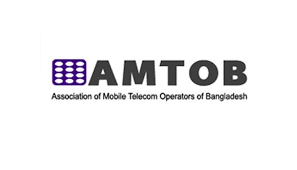The Association of Mobile Telecom Operators of Bangladesh (AMTOB) has welcomed the Draft Telecommunications Network and Licensing Reform Policy 2025, calling it a “bold step” toward overhauling the country’s complex telecom framework.
In a statement issued on Tuesday, AMTOB said, “We unequivocally welcome the government’s intention behind the Draft Reform Policy. Although the draft does not address several of our long-standing concerns, we recognize it as an important and courageous initiative to untangle the inefficient web the telecom ecosystem has become.”
The proposed policy aims to restructure the existing licensing regime by categorizing it into three segments: International Connectivity Services, National Infrastructure Connectivity Services, and Access Network Services. AMTOB described this as a significant improvement over the current framework.
“While the policy does not restore certain rights previously held by mobile operators — such as deploying their own fiber or constructing their own towers — it marks a progressive shift more aligned with international best practices,” the statement said.
Addressing public concerns that the reform disproportionately benefits foreign entities or mobile operators, AMTOB clarified, “The current draft does not confer undue advantage on either group. In fact, it continues to limit the operational scope of mobile operators, who are at the forefront of delivering digital services to citizens nationwide.”
AMTOB noted that the existing restrictive framework makes it increasingly difficult for operators to maintain consistent quality of service. It pointed to outdated policies, particularly the International Long Distance Telecommunication Services Policy (ILDTS) of 2007, as contributors to systemic inefficiencies.
“The ILDTS fragmented the sector and introduced intermediary entities such as IGWs, IIGs, ICXs, and NTTNs — many of which add little value to the goal of seamless connectivity. Instead, they have inflated costs and stifled innovation,” the statement added.
Highlighting global practices, AMTOB noted that mobile operators in most countries are empowered to manage end-to-end infrastructure — a model that ensures better service quality and affordability. In contrast, Bangladesh’s fragmented licensing regime has hindered sectoral growth and diminished consumer experience.
“Telecom sector reform is not just an industry concern; it is a national interest. A healthy, competitive, and efficient telecom ecosystem is essential for a thriving digital economy. It drives innovation, empowers citizens, facilitates e-governance, and supports broader socio-economic goals,” the organization said.
AMTOB emphasized that if developed inclusively and implemented pragmatically, the proposed reform framework could lead to greater efficiency in network deployment, lower service costs, improved quality across both urban and rural areas, and a level playing field that encourages innovation and long-term investment.
The association also urged all stakeholders — including IGW operators, NTTNs, and others in the telecom value chain — to support the reform process in good faith with the shared goal of improving Bangladesh’s telecommunications landscape.

